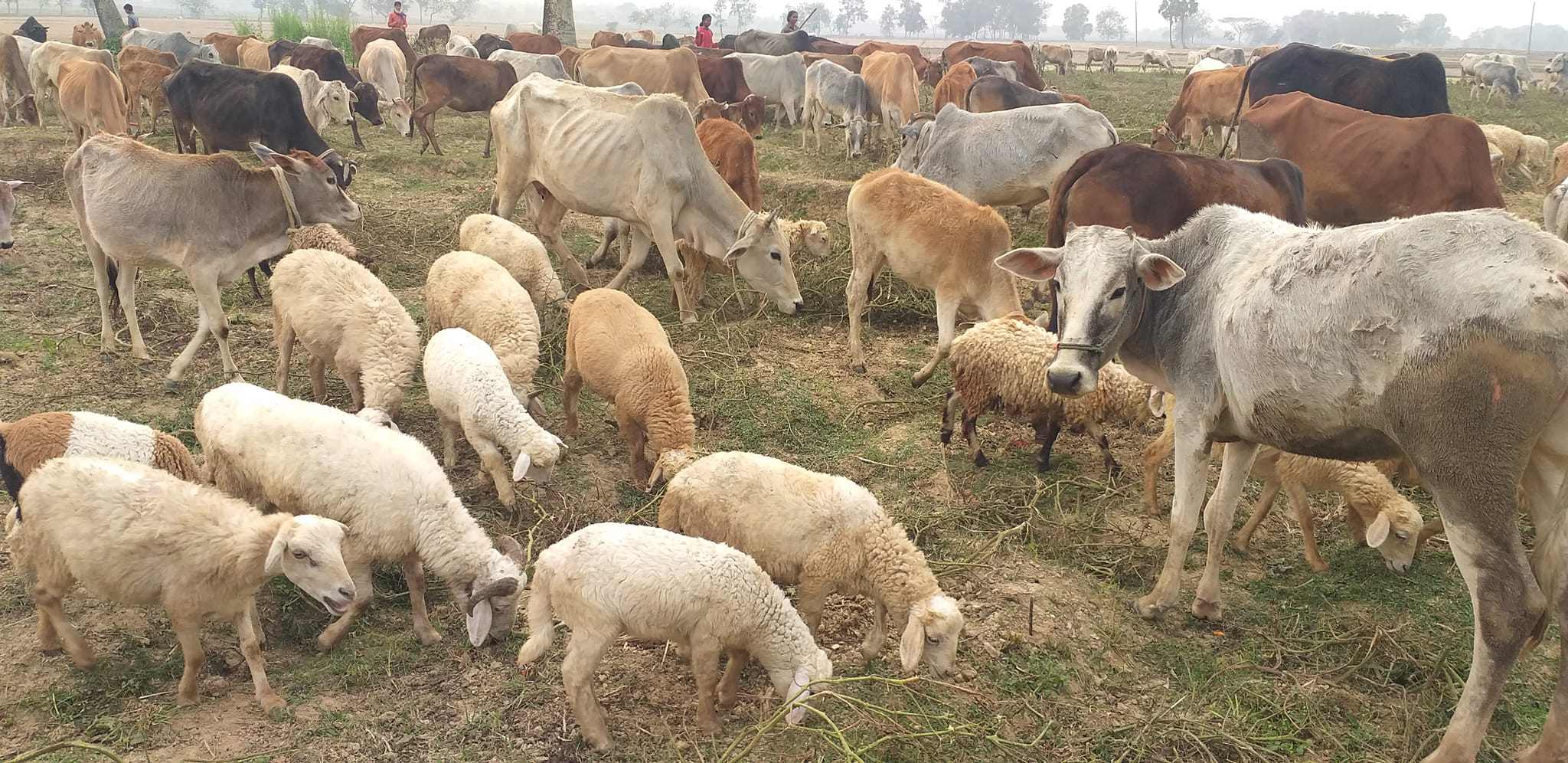News Flash

By Md Aynal Haque
RAJSHAHI, June 4, 2025 (BSS)- As only two days left for Eid-ul-Azha, cattle markets-both permanent and temporary-have gained momentum across Rajshahi division, marked by the dominance of domestically reared animals over artificially fattened or imported ones.
Currently, a wide variety of sacrificial animals, particularly cattle and goats, are available in the markets. The presence of a large number of buyers has resulted in bustling trading activities in the region.
According to market sources, locally reared, healthy, and hygienic cattle are the most preferred by buyers over artificially fattened or imported ones, which are significantly fewer this year.
Boosted by the growth of the local animal husbandry sector in recent years, the supply of native cattle has surged, dominating the sacrificial animal markets across the division. Buyers in most markets are opting for native animals.
Household-level rearing of cattle, goats, and sheep has led to a surplus of sacrificial animals in the division-around 17 lakh more than the local demand.
Sacrificial animals-primarily cattle, calves, bulls, buffaloes, goats, and sheep-are widely reared in the region, especially for Eid-ul-Azha.
Farmers are enjoying a favourable market situation this year, with no competition from imported cattle. They are also receiving expected prices for their animals.
With Eid approaching fast, buyer turnout continues to increase. Compared to the previous two years, prices of sacrificial animals are lower this year, though sellers are still earning fair returns.
In Rajshahi, several major cattle markets-City Hat, Damkura Hat, Taherpur, Baneswar, Puthiya, and Katakhali-are seeing large gatherings of buyers and sellers.
City Hat, historically one of the largest cattle markets in the area, is now filled with animals of all sizes, with medium-sized cattle leading the trend.
Traders and farmers from remote areas are arriving at the markets early in the morning, and trading continues until midnight. While Sundays and Wednesdays are designated for the City Hat, it is currently running every day ahead of Eid.
Each medium-sized goat is selling between Taka 1 lakh to 1.2 lakh, while smaller ones range from Taka 65,000 to 90,000. Buffalo prices are also comparatively lower this year, with medium-sized ones selling for Taka 2.5 lakh to 3 lakh.
Nazrul Islam, 45, from Shibpur under Puthiya upazila, said he sold all of his cattle at satisfactory prices and incurred no losses this year.
Mosabber Hossain, a cattle trader from Charghat upazila, said there were no imported cattle this year due to active measures by law enforcement, especially Border Guard Bangladesh (BGB), to prevent illegal cattle entry.
He added that the record supply of local animals was a result of proactive farming and fattening efforts by rural farmers.
Taser Ali, a buyer at City Hat, said he purchased a bull at a relatively lower price and did not delay the purchase fearing a possible price hike.
Khairul Islam, leaseholder of City Hat, said closed-circuit cameras have been installed for security, alongside the presence of law enforcement personnel and volunteers. Screening machines are also in use to detect fake currency.
Dr Helal Uddin, Livestock Officer at Paba Upazila, said 213 veterinary teams are working in the cattle markets to ensure animal health.
District Livestock Officer Dr Ataur Rahman said 4,96,893 sacrificial animals have been prepared in the division, exceeding the demand and ensuring benefit for grassroots farmers.
According to the latest official figures, about 43 lakh sacrificial animals are available across the division's eight districts, while the demand stands at around 26 lakh. The surplus 17 lakh animals are being transported to other parts of the country, including Dhaka, Chattogram, and Sylhet.
Dr Ananda Kumar Adhikary, Divisional Director of the Department of Livestock, said a total of 302 cattle markets have been set up for Eid-161 permanent and 141 temporary.
He added that the veterinary teams are actively examining animals' health, identifying pregnant cattle, and providing treatment to prevent diseases.
Meanwhile, Rapid Action Battalion (RAB) has intensified security in cattle markets across five districts of the region.
"We have established control rooms at major cattle markets to prevent crimes centering Eid," said Lt Col Masud Parvez, Commanding Officer of RAB-5.
He added that first-aid centres have been set up for both buyers and sellers, with screening machines in place to detect counterfeit notes. Intelligence surveillance has also been strengthened to ensure public safety.
"Raids are being conducted at various key locations and highways to deter criminal activities, allowing people to prepare for Eid in a safe environment," he added.